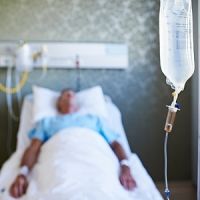Organ dysfunction is common after cardiac arrest and associated with worse short-term outcome. New research shows that extracerebral organ failure, measured as the 24 hour-EC-SOFA score, is also an important contributor to both long-term outcome and increased healthcare-associated costs in cardiac arrest patients.
For this retrospective study, researchers used nationwide registry data from the intensive care units (ICU) of five Finnish university hospitals to evaluate the association of 24-hour extracerebral Sequential Organ Failure Assessment (24 hour-EC-SOFA) score with one-year survival and treatment costs after cardiac arrest.
The study included adult cardiac arrest patients treated in the participating ICUs between 1 January 2003 and 31 December 2013. Investigators obtained the confirmed date of death from the Finnish Population Register Centre database and gross 1-year healthcare-associated costs from the hospital billing records and the database of the Finnish Social Insurance Institution.
Of 5,814 patients included in the study, 2,401 were alive one year after cardiac arrest. Median (interquartile range (IQR)) 24 hour-EC-SOFA score was 6 (5–8) in one-year survivors and 7 (5–10) in non-survivors. In multivariate regression analysis, adjusting for age and prior independency in self-care, the 24 hour-EC-SOFA score had an odds ratio (OR) of 1.16 (95% confidence interval (CI) 1.14–1.18) per point for one-year mortality.
Median (IQR) healthcare-associated costs in the year after cardiac arrest were €47,000 (€28,000–75,000) in one-year survivors and €12,000 (€6600–25,000) in non-survivors. In a multivariate linear regression model adjusting for age and prior independency in self-care, an increase of one point in the 24 hour-EC-SOFA score was associated with an increase of €170 (95% CI €150–190) in the cost per day alive in the year after cardiac arrest. In the same model, an increase of one point in the 24 hour-EC-SOFA score was associated with an increase of €4,400 (95% CI €3,300–5,500) in the total healthcare-associated costs in one-year survivors.
The findings could encourage future research on the potential of EC-SOFA or SOFA score as end points in randomised controlled trials on cardiac arrest. The SOFA score is widely used for estimating the severity of multiple organ failure (MOF). This score was originally developed for the evaluation of organ failure in sepsis, but it has later been validated as a general scoring system for all critically ill patients.
Based on these new findings, multiple organ failure must be considered in the pursuit to reduce morbidity, increase survival, and optimise the use of healthcare resources after cardiac arrest.
Source: Critical Care
Image Credit: freeimages.com



























